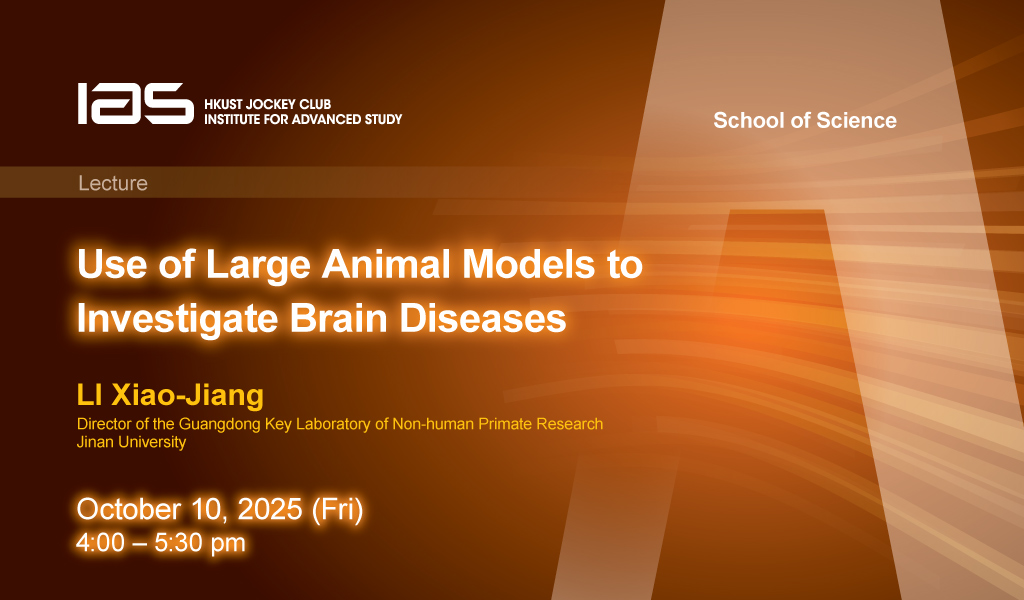

Abstract
Genetically modified animal models have been extensively used to investigate the pathogenesis of age-dependent neurodegenerative diseases, such as Alzheimer (AD), Parkinson (PD), Huntington (HD) diseases, and Amyotrophic Lateral Sclerosis (ALS). The common feature of these diseases is the age-dependent accumulation of misfolded proteins in the brain, which can be recapitulated in a variety of mouse models of neurodegenerative diseases. However, the brains of transgenic mouse models of AD, PD, and HD do not show the striking neuronal loss or degeneration that is a typical pathological feature in patient brains. Species differences between small animals and humans may account for differential pathology in transgenic mouse models and patient brains. Using CRISPR/Cas9 to modify the endogenous disease genes in large animals (pigs and monkeys), the speaker and his research team demonstrate that typical neuropathological features can be mimicked in the brains of large animals. The findings underscore the importance of using large mammals to investigate the pathogenesis of important brain diseases and their therapeutics.
About the Speaker
Prof. LI Xiao-Jiang is a Professor at Jinan University. He also serves as the Director of the Guangdong Key Laboratory of Non-human Primate Research.
Prof. Li obtained his PhD from Oregon Health & Science University and completed his postdoctoral training at Johns Hopkins University in the US. From 1996 to 2019, he worked in the Department of Human Genetics at Emory University, where he was promoted to tenured full professor in 2005 and has held the title of Distinguished Professor since 2007. Between 2012 and 2016, he conducted research at the Institute of Genetics and Developmental Biology, Chinese Academy of Sciences, where he utilized CRISPR/Cas9 technology to establish large animal models of human diseases. In 2019, he joined Jinan University on a full-time basis and currently holds a professorship at the Guangdong-Hong Kong-Macau Institute of CNS Regeneration at Jinan University.
Prof. Li is dedicated to studying early nervous system development, aging, and neurodegenerative diseases, employing transgenic disease animal models such as mice, pigs, and monkeys. He is currently focused on elucidating pathogenic mechanisms using genetically modified large animal models. His research findings have been published in over 250 international journals, including reputable publications like Cell and Nature, with cumulative citations exceeding 33,810 and an H-index of 95.
.
For Attendees' Attention
Seating is on a first come, first served basis.

Director, Guangdong Key Laboratory of Non-human Primate Research


